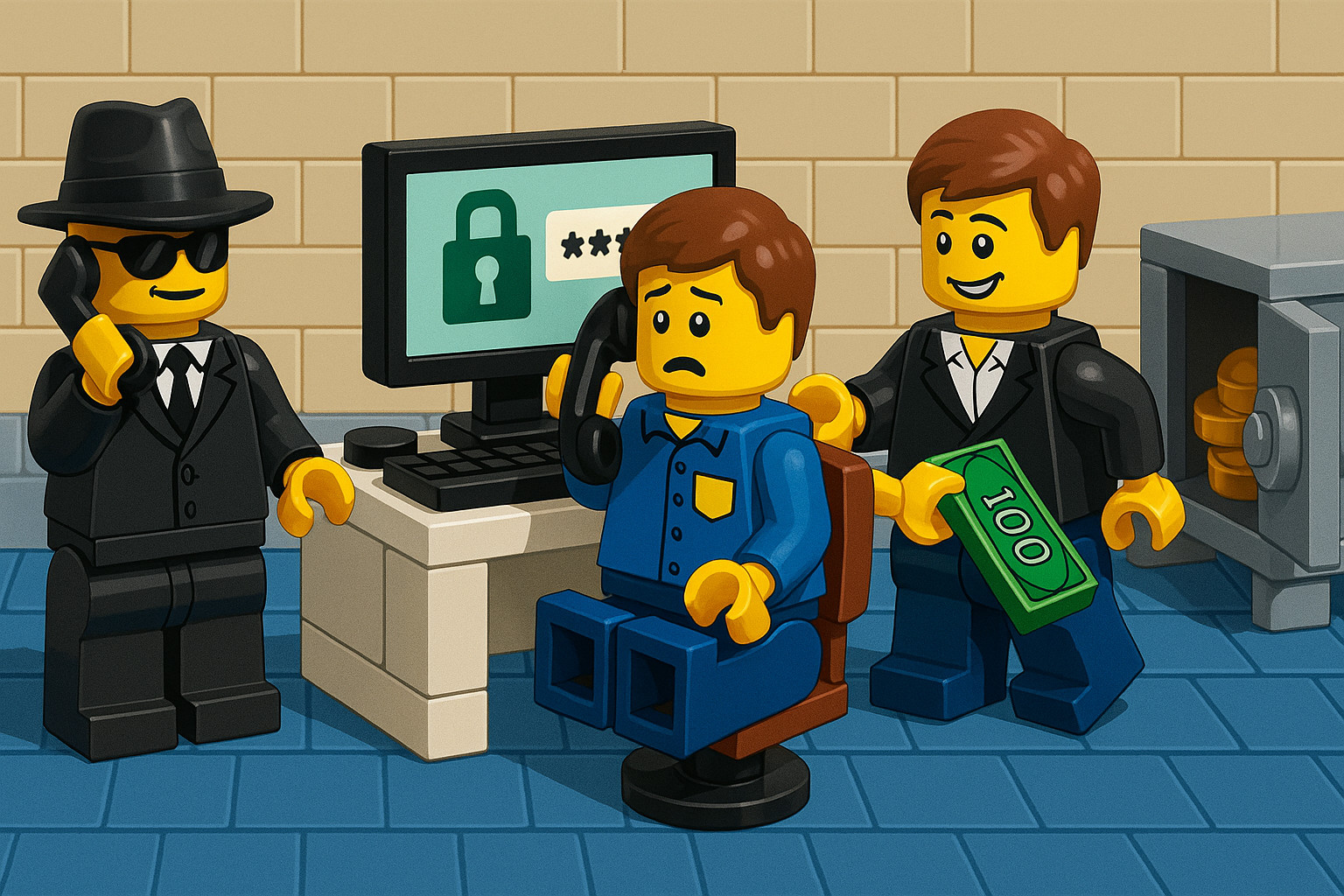Hack me if you can: social engineering explained like a heist movie
Imagine a movie in the style of Ocean’s Eleven. Except that instead of cracking a safe in Las Vegas, hackers prefer… your password and your bank account. Welcome to the world of social engineering 🎭.
🎥 The Plot
Social engineering is the art of manipulating humans to obtain what no malware can steal: trust.
No programming skills needed, just a good script and a little audacity.
🎭 Main Roles
The fake IT support: “Hello, this is the IT department. Give me your password, it's urgent.”
The rushed boss: an email that says “Transfer €10,000 immediately!”, signed “the boss” (but sent from ceo@entreprise-bid0n.com).
The friendly delivery person: asks you to enter your badge code to “drop off a package.”
The ghost colleague: a fake LinkedIn identity that adds you to gather internal info.
🎯 Why does it work?
Because hackers play on our reflexes:
Fear: “Your account will be locked in 30 minutes!”
Urgency: “It's for right now.”
Authority: “It's the boss who requires it.”
Curiosity: “Click here to see who’s talking about you.”
In short: they don’t hack your server, they hack your brain 🧠.
🛡️ How to react like a pro?
Always verify identity: call your boss before transferring €10,000.
Never give your password by phone or email (even if “Jean-Michel from IT support” insists).
Train your teams: because a trained human = a fortified door.
Implement clear procedures: double validation for transfers, confirmations outside email.
🎬 Conclusion
Social engineering is like cinema… but when you fall into it, it's not a happy ending.
At OBI Partner, we like to remind you:
“A good firewall blocks attacks. A good reflex blocks scams.” 🛡️
👉 In the next episode, we’ll talk about passwords: why “123456” is the Golden Turnip of cybersecurity.


